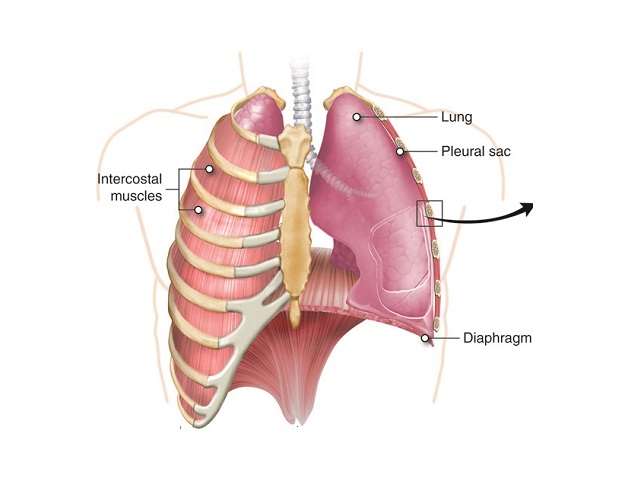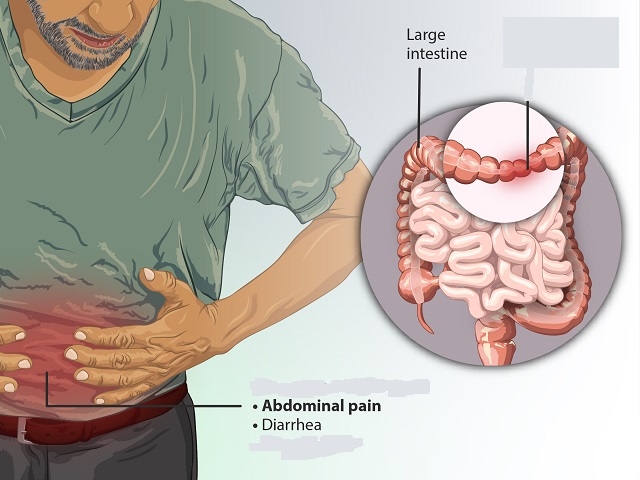7 Signs You May Have Emphysema -- Symptoms, Causes, Effects, Treatment and Prevention
Image by Cenveo, CC BY 4.0, via Wikimedia Commons
Emphysema is a chronic lung disease characterized by the damage and destruction of the air sacs (alveoli) in the lungs, leading to breathing difficulties and impaired lung function. It is primarily caused by long-term exposure to irritants, especially cigarette smoke.
Symptoms of Emphysema:
The symptoms of emphysema may include:
- Shortness of breath, especially during physical activity
- Wheezing and chest tightness
- Chronic cough
- Frequent respiratory infections
- Fatigue and weakness
- Unintended weight loss
- Reduced tolerance for exercise
Diagnosis of Emphysema:
The diagnosis of emphysema typically involves:
- Medical history and physical examination: The doctor will inquire about symptoms and medical history, as well as listen to the lungs for abnormal sounds.
- Pulmonary function tests: These tests measure lung function and capacity, including spirometry and lung volume tests.
- Chest X-ray or CT scan: Imaging tests can help visualize the lungs and detect signs of emphysema.
- Arterial blood gas analysis: This test measures oxygen and carbon dioxide levels in the blood, providing information about lung function.
Causes of Emphysema:
The primary cause of emphysema is long-term exposure to irritants, with cigarette smoke being the leading risk factor. Other causes may include:
- Exposure to secondhand smoke
- Occupational exposure to dust, chemicals, or fumes
- Alpha-1 antitrypsin deficiency (a genetic condition that affects lung function)
Effects of Emphysema:
Emphysema can have significant effects on the respiratory system and overall health, including:
- Progressive damage to the alveoli and lung tissue
- Reduced lung capacity and impaired airflow
- Difficulty in breathing, especially exhaling
- Decreased oxygen exchange in the lungs, leading to low blood oxygen levels
- Increased susceptibility to respiratory infections
- Chronic cough and sputum production
Treatment of Emphysema:
The treatment of emphysema aims to manage symptoms, slow disease progression, and improve quality of life. Treatment options may include:
- Smoking cessation: Quitting smoking is the most crucial step in slowing the progression of emphysema.
- Medications: Bronchodilators, inhaled corticosteroids, and other medications may be prescribed to improve breathing and reduce inflammation.
- Pulmonary rehabilitation: This program involves exercise training, breathing techniques, and education to enhance lung function and daily functioning.
- Oxygen therapy: Supplemental oxygen may be prescribed to increase oxygen levels in the blood.
- Surgical interventions: In severe cases, surgical procedures like lung volume reduction surgery or lung transplantation may be considered.
Prevention of Emphysema:
Prevention of emphysema primarily revolves around avoiding risk factors and promoting healthy lifestyle choices:
- Quitting smoking and avoiding secondhand smoke
- Minimizing exposure to occupational and environmental pollutants
- Protecting lung health through regular exercise and a balanced diet
- Seeking early medical attention for respiratory symptoms and addressing them promptly
It is important to consult with healthcare professionals for accurate diagnosis, personalized treatment plans, and ongoing management of emphysema.
References:
Mayo Clinic. (2021). Emphysema. Retrieved from https://www.mayoclinic.org/diseases-conditions/emphysema/symptoms-causes/syc-20355555


















